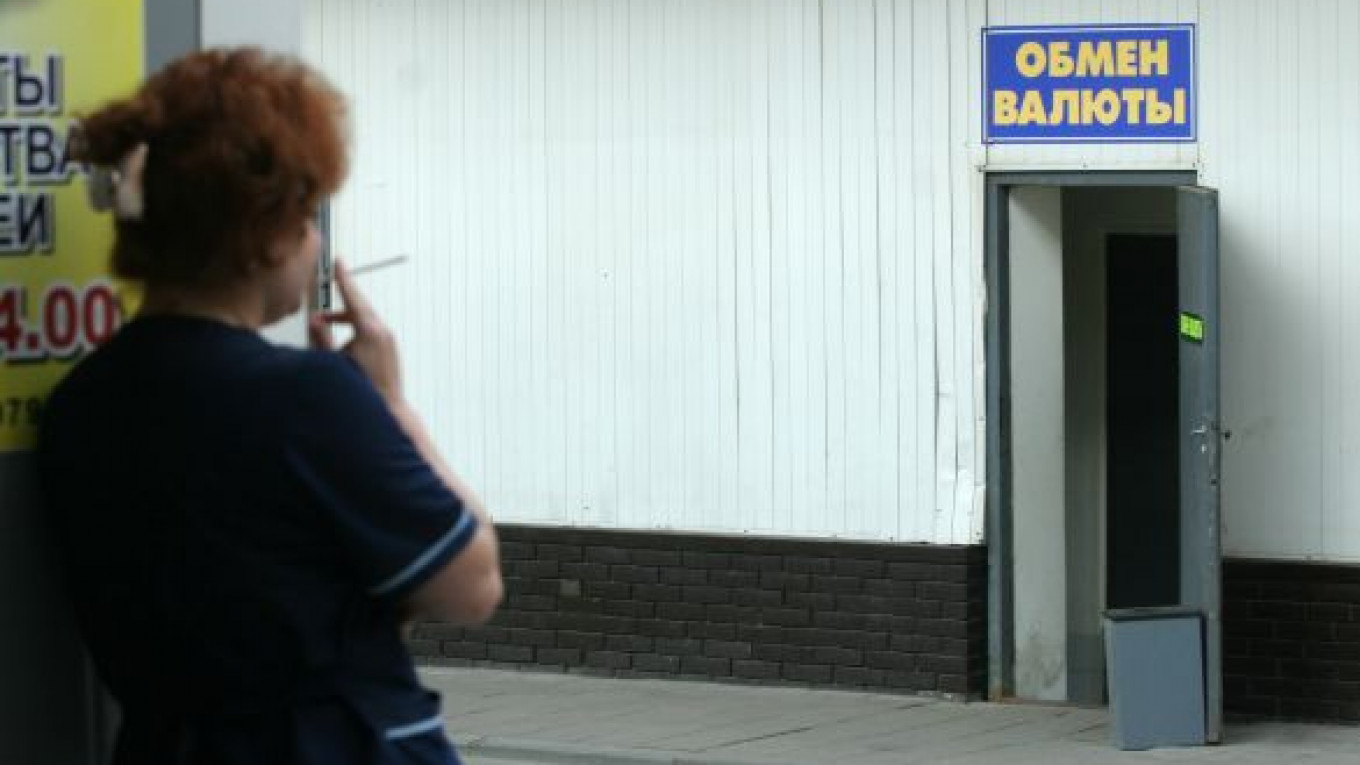The country's last foreign exchange booths, which sprang up by the thousand after the collapse of the Soviet Union, closed Thursday, as a strong ruble and increased use of cards enabled the Central Bank to ban them.
The stand-alone exchange booths — usually small, windowless rooms hidden behind heavy metal doors — will become illegal on Oct. 1, having had since April to prepare to close or reinvent themselves by offering financial services like money transfers.
"The ruble is a strong currency, despite all the fluctuations," Central Bank board member Mikhail Sukhov told a news briefing. "You no longer need to convert your wages into foreign currency twice a month to be able to buy a fridge."
The increased popularity of credit and debit cards has also reduced the need for cash currency conversions, he added.
In the late 1990s there were more than 11,000 exchange booths but, as confidence in the ruble and the banking system increased during nearly a decade of oil-fueled economic growth, their number fell steadily.
The global financial crisis shook, but did not destroy, confidence in the national currency. A controlled ruble devaluation by the Central Bank managed to avert panic, and the government stepped in to prop up banks.
In May, there were less than 400 of the booths in the whole country, three-quarters of them in or near Moscow. By Tuesday, their number had fallen to 140.
The Central Bank says the ban will make it easier to spot illegal operations and will reduce swindling, common in such places. Russians who want to change money can now do so legally in more than 24,000 places, including bank branches.
A Levada poll earlier this year showed that only 8 percent of Russians had used an exchange booth in the last 12 months, and most respondents thought that the ban would not affect them. Some 79 percent of Russians prefer to keep their savings in rubles rather than foreign currency, according to pollster VTsIOM.
A Message from The Moscow Times:
Dear readers,
We are facing unprecedented challenges. Russia's Prosecutor General's Office has designated The Moscow Times as an "undesirable" organization, criminalizing our work and putting our staff at risk of prosecution. This follows our earlier unjust labeling as a "foreign agent."
These actions are direct attempts to silence independent journalism in Russia. The authorities claim our work "discredits the decisions of the Russian leadership." We see things differently: we strive to provide accurate, unbiased reporting on Russia.
We, the journalists of The Moscow Times, refuse to be silenced. But to continue our work, we need your help.
Your support, no matter how small, makes a world of difference. If you can, please support us monthly starting from just $2. It's quick to set up, and every contribution makes a significant impact.
By supporting The Moscow Times, you're defending open, independent journalism in the face of repression. Thank you for standing with us.
Remind me later.






